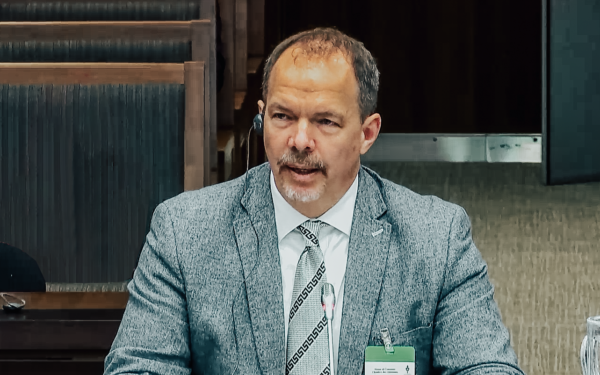The ‘Stop the Net Grab’ campaign ooposes certain proposals by member states to an upcoming international conference of the the ITU.
I am throwing my support behind an international campaign that started on Monday to oppose certain proposals by member states to an upcoming international conference of the International Telecommunication Union (ITU), the body that is responsible for telecommunications traffic globally. While there are some very valid proposals in the mix, such as regulating mobile roaming, there are other proposals that would seek to put certain key elements of the Internet under control of the ITU, a United Nations co-ordinated, multi-national body. A number of ITU member countries are expected to put forward proposals to amend the International Telecommunications Regulations (ITRs), with the objective of regulating key aspects of the Internet at the upcoming World Conference on International Telecommunications Regulations (WCIT) in Dubai in December. The proposals that concern me most seek to regulate (1) quality of service, (2) billing settlement and (3) security. I am an outspoken supporter of the multi-stakeholder model for Internet governance – the model currently employed by ICANN, the organization at the centre of the Internet governance world – and have written about this subject before.
Why do I believe it would be a mistake to have the above noted elements of the Internet fall under the control of the ITU? First, the telephony model that the ITU uses to govern telecommunications cannot be ported directly to the Internet as it is incompatible based on the Internet’s architecture, not to mention that tracking network transactions to calculate billing is practically impossible.
Second, the rapid pace of innovation and development of the Internet can be attributed to its bottom-up management and open standards setting processes and to the limited scope of regulation by national governments. The ITU’s top-down decision-making processes run counter to evolutionary approaches to changing technology. Additionally, there is a potential for unrelated higher level state-to-state politics to interfere with Internet governance decision-making. This could curtail the rapid innovation in technology and applications that has characterized the Internet and risk slowing down the development and diffusion of this platform for innovation, creativity, education, entertainment, development, and social interaction.
Third, I would caution that the focus of certain ITU member states on security is being used as a siren song. Yes, there are many very serious security concerns facing the Internet today, and I have no doubt this will continue in the future. We need to think this through carefully, however. Is a state-to-state body the right kind of entity to regulate security? The widely held concern of many in the Internet community is that states that are less than democratic will use their influence to ensure the Internet is more closely monitored, rather than safeguarding its free and open nature.
I am not alone in my support of the multi-stakeholder model. Countries, individuals and organizations from around the world support the current system for running the Internet, including the Canadian government. At a recent meeting of the International Corporation of Assigned Names and Numbers (ICANN), the President of the Treasury Board, the Honourable Tony Clement also reaffirmed the Government of Canada’s support for the multi-stakeholder model of Internet governance. This is a governance model that reflects the uniqueness of the Internet itself which we must work to preserve and evolve. Personally, I do not believe this success can be replicated with the aforementioned proposals being put forward for approval at the ITU meeting in December.
The multi-stakeholder model may not be perfect, but I do not believe it is in the best interests of Canadians, or the global population, to throw the proverbial baby out with the bathwater. I’ll explain this in a future blog post. I therefore call on you, as a member of the Canadian Internet community, to support this initiative in opposing proposals that would see the ITU regulate the Internet’s quality of service, billing settlement and security.
Please take the time to sign this online petition showing your support for the free and open Internet. This petition can be found here.
Byron Holland (MBA, ICD.D) est président et chef de la direction de CIRA, l’organisme national à but non lucratif mieux connu pour sa gestion du domaine .CA et pour l’élaboration de nouveaux services de cybersécurité, de registre et de DNS.
Byron est un expert de la gouvernance de l’Internet et un entrepreneur aguerri. Sous l’égide de Byron, CIRA est devenue un des principaux ccTLD au monde en gérant plus de 3 millions de domaines. Au cours de la dernière décennie, il a représenté CIRA à l’échelle internationale et occupé de nombreux postes de dirigeant au sein de l’ICANN. Il siège présentement sur le conseil d’administration de TORIX en plus d’être membre du comité des mises en candidature de l’ARIN. Il habite à Ottawa en compagnie de son épouse, de leurs deux fils et de Marley, leur berger australien.
Les opinions partagées sur ce blogue sont celles de Byron sur des enjeux qui touchent l’Internet et ne représentent pas nécessairement celles de l’entreprise.




